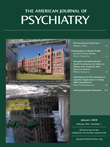Healing Psychiatry: Bridging the Science/Humanism Divide
In Healing Psychiatry, David H. Brendel, M.D., a psychiatrist with additional training in ethics and philosophy, offers an unusual perspective on the importance of simultaneously using scientific evidence and humanism in practicing psychiatry.
This brief and thoughtful book, targeted to a multidisciplinary audience, begins with a discussion of the limitations of reductive scientific explanations on the one hand and unfocused, disordered eclecticism on the other. Dr. Brendel instead suggests working within a pragmatic model that focuses on achieving practical outcomes. In effect, psychiatrists need to choose from a multitude of perspectives and select those that are most likely to benefit the particular patient being treated. This allows psychiatrists to keep in mind that every patient is unique, that every theory changes over time, and that the relationship between the mind and the body is reciprocal.
Dr. Brendel suggests that there are four “P’s” required to implement this pragmatic approach. They involve acknowledging 1) the practical dimensions of all scientific inquiry, 2) the pluralistic nature of scientifically studied phenomena and the tools that are used in their study, 3) the participatory role of many individuals with different perspectives in the necessarily interpersonal process of scientific inquiry, and 4) the provisional and flexible character of scientific explanation.
Therefore, psychiatrists who work within the pragmatic model seek practical outcomes for ordinary people, consider the plurality of explanatory concepts, seek the participation of the patient in decision making, and accept that current theories and treatments are provisional, leaving room for new, future discoveries that will improve outcomes. It falls to the pragmatic psychiatrist to understand and effectively utilize all relevant scientific evidence while taking into account human subjectivity and patient experiences. Humanistic approaches and neurobiological explanations complement, rather than conflict with, one another.
Dr. Brendel then explores the implications of this central theme. Chapter 3 applies pragmatic concepts to several clinical cases. Chapter 4 discusses the mind/body problem from a philosophical perspective, in particular the pitfalls of eliminative materialism versus mysterianism, which parallel those of scientific reductionism versus humanistic eclecticism. Chapter 5 is an engaging look at how Sigmund Freud struggled with the mind/body problem to achieve pragmatic clinical results. Chapter 6 contends that neurology and psychiatry should maintain their separate spheres. Chapter 7 argues that it is a myth that DSM-III, DSM-III-R, DSM-IV, and DSM-IV-TR are atheoretical, and Dr. Brendel makes some provocative suggestions for future versions of DSM. Chapter 8 discusses healing the science/humanism divide and the importance of psychodynamic understanding, psychotherapy, and ethics to the care of patients.
The book ends on a somewhat playful note, pointing out that clinical pragmatism should be adopted only insofar as it proves helpful to patients. After all, it would be consistent with the open-minded and open-ended values of pragmatism that the pragmatic approach should be abandoned if a better one comes along.
Psychiatrists trying to reconcile the conflicting approaches in the field will find both practical information and food for thought in Healing Psychiatry .



